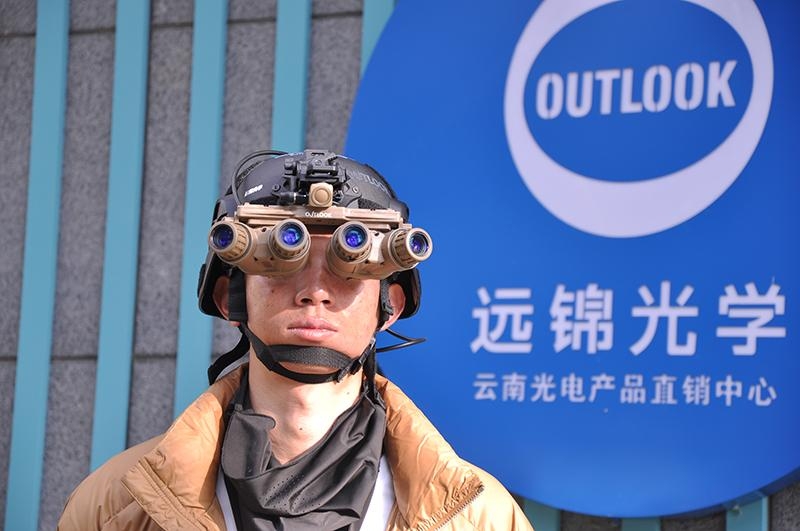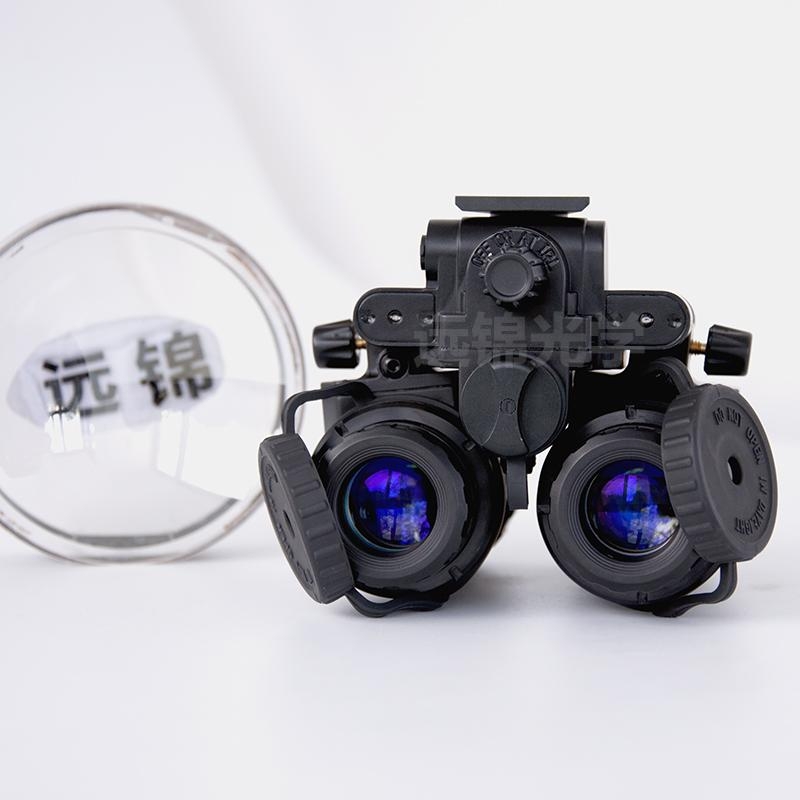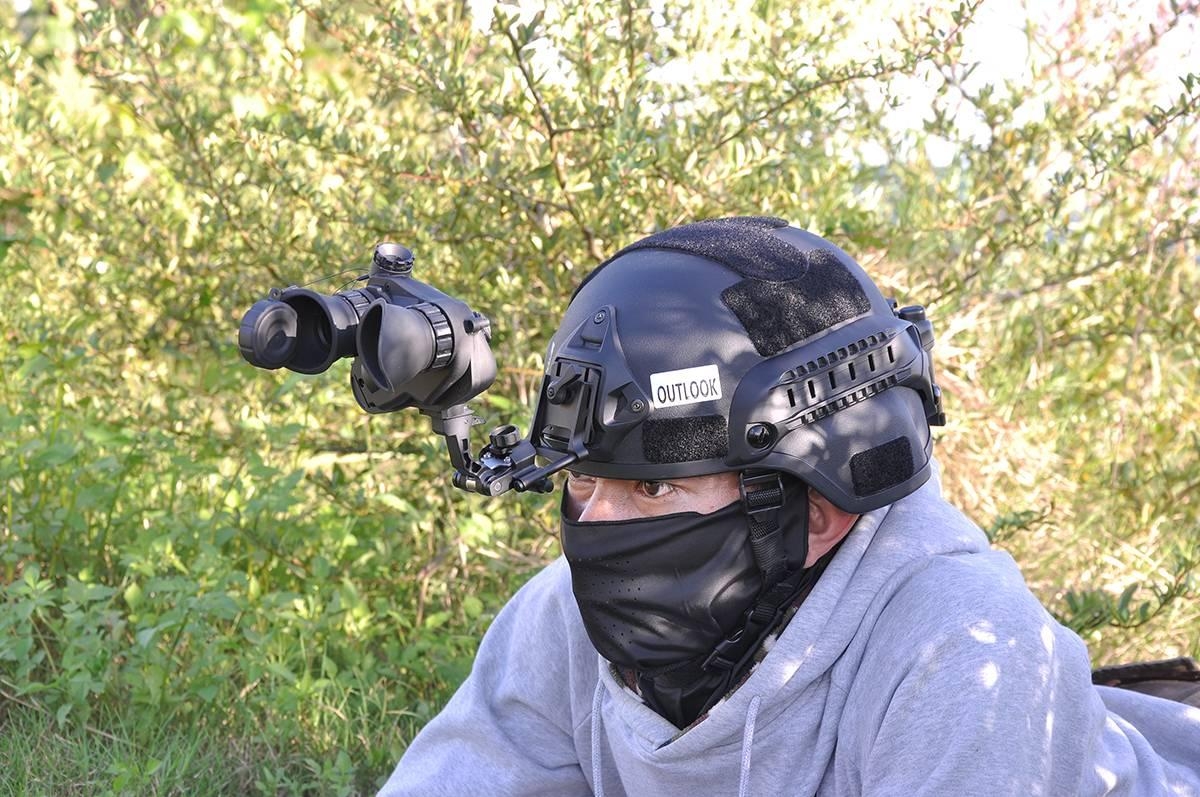The working principle of night vision devices
I. Working Principle
1. Light Collection
The objective lens gathers the weak ambient light (such as moonlight, starlight or atmospheric glow)
reflected by the target.
2. Photoelectric Conversion
The light is focused on the photocathode (electrode coated with photosensitive material), and the
photons excite the electrons to escape, forming an electron flow.
3. Electron Multiplication
The electron flow passes through the microchannel plate (MCP), and the inner wall of each microchannel
amplifies the number of electrons by thousands to tens of thousands of times through the secondary
emission effect.
4. Fluore scence Imaging
The multiplied electrons bombard the fluorescent screen, excite the fluorescent material to emit light,
and form a visible enhanced image (usually green, because humans are sensitive to green).
5. Eyepiece Magnification
The final image is further magnified through the eyepiece for human observation.

II. Main Advantages
1. Passive operation, strong concealment
It does not actively emit infrared or other light sources to avoid exposing its own position, and is suitable
for military, reconnaissance and other scenes.
2. Real-time imaging, no processing required
Images are generated directly through the optical system, without delay, suitable for rapid response in
dynamic environments.
3. Lightweight and easy to carry
Compact structure, can be integrated into helmets or handheld devices, suitable for single soldiers or
field use.
4. High sensitivity and resolution
Modern low-light night vision devices can still generate clear images with high detail recognition under
extremely low illumination (below 0.001 lux).
5. Strong compatibility
Can be used with infrared fill light in a completely dark environment, or combined with other optical
devices (such as cameras, scopes).
6. Low power consumption and long life
Depends on ambient light, no complex cooling system is required, low power consumption and simple
maintenance (GaAs cathode is used for the third generation and above, with longer life).

Applicable scenarios
I. Military and law enforcement
1. Night combat and reconnaissance
Night vision goggles are used for night reconnaissance, target positioning and covert operations in
military operations.
2. Law enforcement and crime tracking
Police use low-light or thermal imaging night vision goggles for night patrols, crime scene evidence
collection and suspect tracking.
3. Border and customs inspections
In complex environments (such as fog and jungle), night vision goggles help border and customs
personnel detect smuggling activities or illegal border crossings.
II. Public safety and emergency response
1. Search and rescue
During disaster rescue, night vision goggles help search and rescue personnel locate survivors in ruins or
dark environments and improve rescue efficiency.
2. Firefighting and forest fire prevention
Thermal imaging night vision goggles can penetrate smoke, monitor the dynamics of the fire scene in
real time, and are used for long-distance monitoring of forest fire prevention (such as laser night vision
goggles covering a range of 3-5 kilometers).
III. Industrial and Infrastructure Maintenance
1. Power and Energy Facility Inspection
Thermal imaging technology is used to detect overheating of power lines or leakage of oil and gas
pipelines to avoid potential accidents.
2. Nighttime Construction and Equipment Maintenance
In mines, oil fields and other places, night vision devices assist workers in equipment inspection or
operation in low-light environments

IV. Civil and Outdoor Activities
1. Wildlife Observation and Ecological Research
Infrared night vision devices are used to observe animal behavior at night, such as deep-sea
bioluminescence, turtle egg laying or coral nocturnal activities, to avoid interfering with natural ecology.
2. Hunting and Camping
Hunters use night vision devices to track prey, while outdoor enthusiasts use them for night navigation
or safety assurance.
3. Fishing and Sailing
Night vision devices help fishermen observe water conditions at night, while crew members use them to
identify obstacles during night navigation.
V. Scientific Research and Special Uses
1. Archaeology and Geological Exploration
Thermal imaging technology can detect buried relics or geological structures under the surface and
assist in archaeological excavations.
2. Medical treatment and disaster relief
In disaster areas or field medical treatment, night vision devices help medical staff to carry out rescue in
dark environments.
VI. Urban and security monitoring
1. Urban high-point monitoring
Laser night vision devices are used for long-distance monitoring of urban commanding heights (such as
transportation hubs and large-scale event security), with a coverage range of several kilometers.
2. Commercial and residential security
Fixed night vision cameras are used for nighttime anti-theft monitoring, and some models support
recording and remote control.

Technical classification and adaptation scenarios
Low-light night vision devices: rely on ambient light and are suitable for covert operations (such as
military reconnaissance).
Thermal imagers: use the infrared radiation of the object itself to form an image, suitable for completely
dark or smoky environments (such as firefighting and power detection).
Laser night vision devices: long-distance monitoring (such as forest fire prevention and border defense),
with a coverage range of several kilometers.

The technological progress of night vision goggles has led to the continuous expansion of their application scenarios, extending from the traditional military field to the civilian, scientific research and industrial fields. It is a key tool for enhancing visual capabilities in low-light environments. In the future, with the reduction of costs and technological iterations (such as the popularization of digital night vision goggles), its applications will become more diversified.
